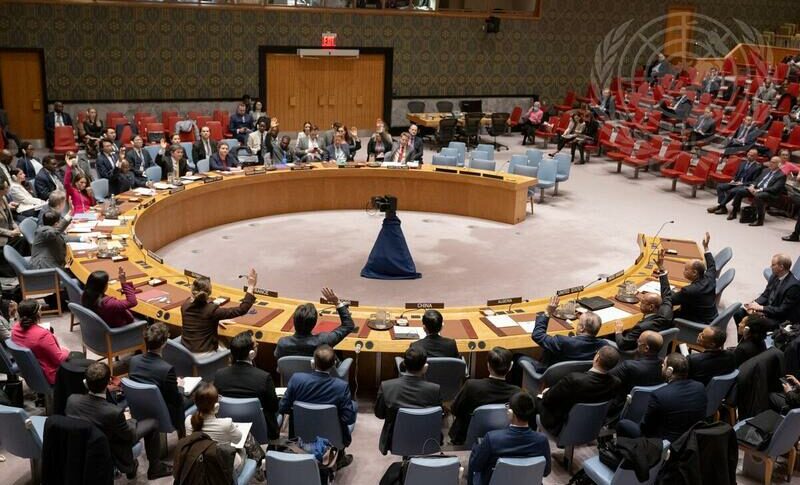Security Council to address violence in Sudan amid calls for civilian protection
November 12, 2024 (NEW YORK) – The United Nations Security Council is convening today for a high-level briefing on the escalating crisis in Sudan, where intensifying violence has led to a surge in civilian casualties and widespread human rights abuses.
The meeting, chaired by the UK’s Parliamentary Under-Secretary of State for Africa, Lord Collins of Highbury, will focus on urgent measures to protect civilians caught in the crossfire between the Sudanese Armed Forces (SAF) and the Rapid Support Forces (RSF).
The briefing comes amidst growing international pressure for decisive action to address the humanitarian catastrophe unfolding in Sudan. Various Sudanese civil society groups have issued urgent appeals for increased protection of civilians, including the establishment of safe zones and an expansion of the existing arms embargo to cover the entire country.
The civilian political coalition “Taqadum” has called on the warring parties and the international community to prioritize civilian protection. In a statement, the group proposed the creation of safe zones where all hostilities cease, military forces withdraw, and a no-fly zone is enforced. These zones, they argue, should be protected by neutral international forces to provide safe havens for civilians.
“Taqadum” also demanded that the Security Council expand its arms embargo, currently limited to the Darfur region, to encompass all of Sudan. Restricting the flow of weapons is seen as crucial to de-escalating the violence and creating conditions for a peaceful resolution to the conflict.
The coalition highlighted the dire situation faced by civilians across Sudan, who are suffering from extrajudicial killings, torture, forced displacement, and rampant sexual violence. They called for the International Criminal Court’s (ICC) jurisdiction to be extended to include the entire country to ensure accountability for war crimes and crimes against humanity committed by all parties to the conflict.
Twelve Sudanese civil society groups, including Fikra and Al Jazirah Conference and the Horn of Africa’s SIHA group, also raised concerns in a letter to Lord Collins of Highbury. They urgently requested that the UN Security Council take action against the Rapid Support Forces (RSF) violence in Sudan’s Al Jazirah state.
The civil society groups accused the RSF of destroying civilian infrastructure, killing, raping, and torturing civilians and causing mass displacement and starvation. They called for an international investigation into the situation, pressure on the UAE to stop supporting the RSF and the referral of the situation to the International Criminal Court.
The letter emphasizes the urgent need for action to prevent further suffering and hold perpetrators accountable.
The Security Council briefing will include reports from UN officials, including Under-Secretary-General for Political and Peacebuilding Affairs Rosemary DiCarlo, and a representative from Sudanese civil society.
Discussions are anticipated to focus on strengthening human rights monitoring mechanisms, launching investigations into recent atrocities, and addressing the urgent humanitarian needs of the Sudanese people. Observers believe the time has come for the Council to establish a dedicated monitoring and compliance mission to protect civilians and ensure adherence to international humanitarian law.
The meeting will also address the issue of foreign intervention in the conflict, with a particular emphasis on the need for all external actors to comply with the existing sanctions regime imposed on Sudan. The humanitarian crisis, including the looming threat of famine and the necessity of maintaining open border crossings for aid delivery, will also be key topics of discussion.

